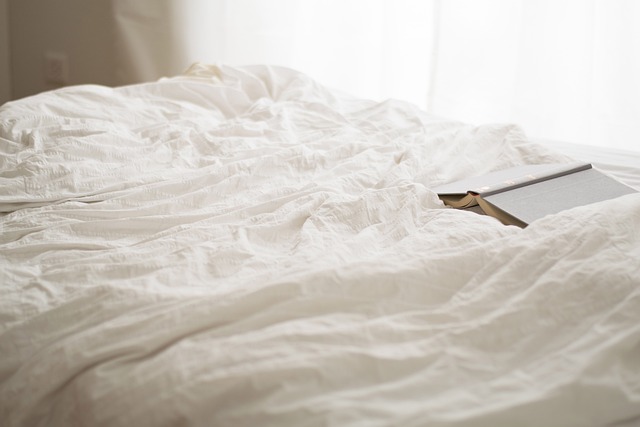-

@ Essencial
2025-03-09 14:24:35
# Time Change: A Mini Jet Lag
The time change is more than just setting the clock forward or backward — it can disrupt our internal balance and lead to a range of health issues. Find out why the time change causes a mini jet lag and how you can deal with it.
### Why the Time Change Throws Us Off Balance
The expected energy savings due to reduced artificial lighting demand have not been confirmed. Worse yet, the time change leads to an increase in workplace and traffic accidents, a higher risk of heart attacks, and even an increase in suicide rates. Many people struggle with the one-hour shift that happens twice a year. There is constant debate about whether to abolish it and which time should remain permanent...
## Permanent Summer Time or Permanent Winter Time?
The time change triggers a mini jet lag that can last from a single day up to three weeks as the body adjusts its internal clock to the new rhythm.
#### Winter Time Aligns Best with Our Internal Clock
Our bodies follow the **circadian rhythm**, an internal clock designed for activity during daylight and rest when the sun sets.
Permanent summer time would mean longer darkness in the morning and extended daylight in the evening—this unnatural shift would completely disrupt our biological processes.

## The Impact of Time Change on Our Health
Our internal clock regulates essential functions such as body temperature, hormone production, the cardiovascular system, and the sleep-wake cycle. This is why the time change often leads to headaches, fatigue, drowsiness, metabolic disorders, and even severe heart rhythm disturbances. Studies show that these disruptions can increase susceptibility to illnesses and psychological disorders.
Since the light-dark cycle dictates this internal clock, prolonged exposure to artificial light after sunset can shift it. When the time suddenly changes, it causes a disruption, throwing off our natural sleep rhythm.
## Sleep Resets the Body!
During the night, the body regenerates:
- The brain is flushed with cerebrospinal fluid to clear out toxins.
- The body undergoes repair, detoxification, and waste removal.
- If the alarm clock rings an hour earlier, the body is still in **"night mode"** and unable to complete its recovery processes!
Most people already suffer from sleep disorders, whether trouble falling asleep or staying asleep. Added to this is the stress of daily life, which often depletes serotonin levels, reducing the body’s ability to produce melatonin —the sleep hormone. Blue light depletes magnesium in our body, disrupts the circadian rhythm, and interferes with melatonin production! We also know that the pineal gland’s melatonin production is impaired by fluoride found in toothpaste, water, and food!
## What Can You Do About Sleep Disorders?
To regulate your sleep rhythm, you need **healthy sleep hygiene**:
- Minimize activity before bedtime.
- Avoid artificial light from TVs, smartphones, and e-readers.
- Ensure fresh air and a cool bedroom (around 18°C/64°F).
- Stick to consistent sleep and wake times — even on weekends!
- Reserve the bed and bedroom for sleep only — no heated discussions.
- No heavy meals before bed.
- Use blue light or orange filter glasses to reduce artificial light exposure.
- Air out the bedroom for 20 minutes before going to bed.
- Use candlelight in the bathroom while brushing your teeth instead of turning on the harsh neon light.
If these adjustments don’t help, natural remedies, supplements, and herbal teas can provide support.
### Natural Sleep Aids
Some well-known natural remedies include:
- **Melatonin, Tryptophan, GABA, Magnesium**
- **Herbs such as Hops, Lavender, Chamomile, Passionflower, Valerian and organge peal and flower.**
By aligning with nature’s rhythm and optimizing sleep habits, we can counteract the negative effects of the time change and restore balance to our bodies and minds.
***I hope this helps you transition smoothly through this outrageous act of forcing us into "summer time"*** ⏰🌞

 @ Essencial
2025-03-09 14:24:35# Time Change: A Mini Jet Lag The time change is more than just setting the clock forward or backward — it can disrupt our internal balance and lead to a range of health issues. Find out why the time change causes a mini jet lag and how you can deal with it. ### Why the Time Change Throws Us Off Balance The expected energy savings due to reduced artificial lighting demand have not been confirmed. Worse yet, the time change leads to an increase in workplace and traffic accidents, a higher risk of heart attacks, and even an increase in suicide rates. Many people struggle with the one-hour shift that happens twice a year. There is constant debate about whether to abolish it and which time should remain permanent... ## Permanent Summer Time or Permanent Winter Time? The time change triggers a mini jet lag that can last from a single day up to three weeks as the body adjusts its internal clock to the new rhythm. #### Winter Time Aligns Best with Our Internal Clock Our bodies follow the **circadian rhythm**, an internal clock designed for activity during daylight and rest when the sun sets. Permanent summer time would mean longer darkness in the morning and extended daylight in the evening—this unnatural shift would completely disrupt our biological processes.  ## The Impact of Time Change on Our Health Our internal clock regulates essential functions such as body temperature, hormone production, the cardiovascular system, and the sleep-wake cycle. This is why the time change often leads to headaches, fatigue, drowsiness, metabolic disorders, and even severe heart rhythm disturbances. Studies show that these disruptions can increase susceptibility to illnesses and psychological disorders. Since the light-dark cycle dictates this internal clock, prolonged exposure to artificial light after sunset can shift it. When the time suddenly changes, it causes a disruption, throwing off our natural sleep rhythm. ## Sleep Resets the Body! During the night, the body regenerates: - The brain is flushed with cerebrospinal fluid to clear out toxins. - The body undergoes repair, detoxification, and waste removal. - If the alarm clock rings an hour earlier, the body is still in **"night mode"** and unable to complete its recovery processes! Most people already suffer from sleep disorders, whether trouble falling asleep or staying asleep. Added to this is the stress of daily life, which often depletes serotonin levels, reducing the body’s ability to produce melatonin —the sleep hormone. Blue light depletes magnesium in our body, disrupts the circadian rhythm, and interferes with melatonin production! We also know that the pineal gland’s melatonin production is impaired by fluoride found in toothpaste, water, and food! ## What Can You Do About Sleep Disorders? To regulate your sleep rhythm, you need **healthy sleep hygiene**: - Minimize activity before bedtime. - Avoid artificial light from TVs, smartphones, and e-readers. - Ensure fresh air and a cool bedroom (around 18°C/64°F). - Stick to consistent sleep and wake times — even on weekends! - Reserve the bed and bedroom for sleep only — no heated discussions. - No heavy meals before bed. - Use blue light or orange filter glasses to reduce artificial light exposure. - Air out the bedroom for 20 minutes before going to bed. - Use candlelight in the bathroom while brushing your teeth instead of turning on the harsh neon light. If these adjustments don’t help, natural remedies, supplements, and herbal teas can provide support. ### Natural Sleep Aids Some well-known natural remedies include: - **Melatonin, Tryptophan, GABA, Magnesium** - **Herbs such as Hops, Lavender, Chamomile, Passionflower, Valerian and organge peal and flower.** By aligning with nature’s rhythm and optimizing sleep habits, we can counteract the negative effects of the time change and restore balance to our bodies and minds. ***I hope this helps you transition smoothly through this outrageous act of forcing us into "summer time"*** ⏰🌞 
@ Essencial
2025-03-09 14:24:35# Time Change: A Mini Jet Lag The time change is more than just setting the clock forward or backward — it can disrupt our internal balance and lead to a range of health issues. Find out why the time change causes a mini jet lag and how you can deal with it. ### Why the Time Change Throws Us Off Balance The expected energy savings due to reduced artificial lighting demand have not been confirmed. Worse yet, the time change leads to an increase in workplace and traffic accidents, a higher risk of heart attacks, and even an increase in suicide rates. Many people struggle with the one-hour shift that happens twice a year. There is constant debate about whether to abolish it and which time should remain permanent... ## Permanent Summer Time or Permanent Winter Time? The time change triggers a mini jet lag that can last from a single day up to three weeks as the body adjusts its internal clock to the new rhythm. #### Winter Time Aligns Best with Our Internal Clock Our bodies follow the **circadian rhythm**, an internal clock designed for activity during daylight and rest when the sun sets. Permanent summer time would mean longer darkness in the morning and extended daylight in the evening—this unnatural shift would completely disrupt our biological processes.  ## The Impact of Time Change on Our Health Our internal clock regulates essential functions such as body temperature, hormone production, the cardiovascular system, and the sleep-wake cycle. This is why the time change often leads to headaches, fatigue, drowsiness, metabolic disorders, and even severe heart rhythm disturbances. Studies show that these disruptions can increase susceptibility to illnesses and psychological disorders. Since the light-dark cycle dictates this internal clock, prolonged exposure to artificial light after sunset can shift it. When the time suddenly changes, it causes a disruption, throwing off our natural sleep rhythm. ## Sleep Resets the Body! During the night, the body regenerates: - The brain is flushed with cerebrospinal fluid to clear out toxins. - The body undergoes repair, detoxification, and waste removal. - If the alarm clock rings an hour earlier, the body is still in **"night mode"** and unable to complete its recovery processes! Most people already suffer from sleep disorders, whether trouble falling asleep or staying asleep. Added to this is the stress of daily life, which often depletes serotonin levels, reducing the body’s ability to produce melatonin —the sleep hormone. Blue light depletes magnesium in our body, disrupts the circadian rhythm, and interferes with melatonin production! We also know that the pineal gland’s melatonin production is impaired by fluoride found in toothpaste, water, and food! ## What Can You Do About Sleep Disorders? To regulate your sleep rhythm, you need **healthy sleep hygiene**: - Minimize activity before bedtime. - Avoid artificial light from TVs, smartphones, and e-readers. - Ensure fresh air and a cool bedroom (around 18°C/64°F). - Stick to consistent sleep and wake times — even on weekends! - Reserve the bed and bedroom for sleep only — no heated discussions. - No heavy meals before bed. - Use blue light or orange filter glasses to reduce artificial light exposure. - Air out the bedroom for 20 minutes before going to bed. - Use candlelight in the bathroom while brushing your teeth instead of turning on the harsh neon light. If these adjustments don’t help, natural remedies, supplements, and herbal teas can provide support. ### Natural Sleep Aids Some well-known natural remedies include: - **Melatonin, Tryptophan, GABA, Magnesium** - **Herbs such as Hops, Lavender, Chamomile, Passionflower, Valerian and organge peal and flower.** By aligning with nature’s rhythm and optimizing sleep habits, we can counteract the negative effects of the time change and restore balance to our bodies and minds. ***I hope this helps you transition smoothly through this outrageous act of forcing us into "summer time"*** ⏰🌞 